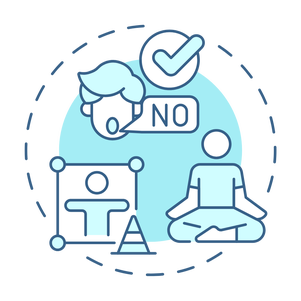Maintaining healthy interpersonal boundaries is essential for preserving both our emotional well-being and our relationships. For those who naturally extend compassion to others, setting limits can feel counterintuitive, yet failing to do so can lead to emotional depletion and a loss of self-control. This post explores how to balance empathy with self-protection, ensuring that we remain emotionally available without compromising our own stability.
Understanding Boundary Types
Boundaries exist on a spectrum, and recognizing their nature can help us adjust them to maintain balance:
Rigid Boundaries: These involve excessive detachment, making it difficult to connect deeply with others.
Porous Boundaries: These allow for too much emotional leakage, often leading to exhaustion, resentment, and a sense of being taken advantage of.
Flexible Boundaries: The healthiest type, these adjust according to context and individual needs, allowing for both connection and self-care.

Signs Your Boundaries Have Been Crossed
Asserting Boundaries Without Causing Harm
Setting boundaries does not mean shutting people out. It involves clear, compassionate communication.
Effective techniques include:
Using "I" Statements:
Express your needs without placing blame. For example, "I need some time to recharge before we talk about this."
Setting Limits with Kindness:
"I care about you, and I want to support you, but I can only listen for 15 minutes before I need to take care of other responsibilities."
Offering Alternatives:
If you can't help in one way, suggest another approach that works for both parties.

Managing Guilt When Setting Boundaries
Guilt is a common response when establishing new limits, especially for those who are used to prioritizing others. To manage this:
Recognize that guilt does not mean wrongdoing—it’s a sign of growth.
Remind yourself that you are not responsible for fixing others’ problems.
Reframe boundary-setting as an act of respect for both yourself and the other person.
How Healthy Boundaries Strengthen Relationships
Contrary to the fear that boundaries push people away, they actually foster healthier, more sustainable connections. When individuals set clear, respectful limits, they reduce resentment, prevent burnout, and model self-respect—encouraging others to do the same.
Take the Next Step
Learning to set compassionate boundaries takes practice.
To support your journey, download our 'Boundary Script Templates'.



Add comment
Comments